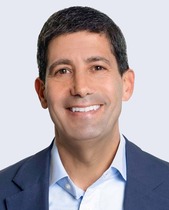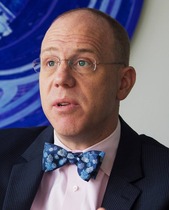
Federal Reserve of the United States
The Federal Reserve of the United State (FED) is the central bank of the United States of America
Associated People
Jerome Powell
2018 - present
Claudia Sahm
2007 - 2019
Gilbert Verdian
2017 - 2018
Ben Bernanke
2006 - 2014
Kevin Warsh
2006 - 2011
David Zervos
2009 - 2009
Randall Kroszner
2006 - 2009
Alan Greenspan
1987 - 2006
Greg Kidd
2002 - 2004
Marvin Barth
1998 - 2003
Amelia Bourdeau
1998 - 2000
Alan Boyce
1982 - 1984
Stephen Roach
1973 - 1979
George Akerlof
1977 - 1978
Arthur Burns
1970 - 1978
William Martin Jr
1951 - 1970
Carter Glass
1918 - 1920
To promote the effective operation of the economy and, generally, the public interest
- Conduct monetary policy - to promote max employment and stable prices
- Open Market Operations (QE programs, Adjust Federal Funds Rate)
- Adjust the Discount rate for non-member commercial banks
- Set Reserve Requirements (more Reserves = less lending)
- Term Deposit Facility
- Overnight Reverse Repurchase Agreement
- Interest on Required and Excess Reserves
- Forward Guidance & Talks (Not an Official Tool)
What Drives the Feds Policies/Actions?
- Inflation measures
- Labor Market (Unemployment, Job Gains)
- GDP growth
- Housing Starts & Sales
- Interest rates
- Yield curve
Stock-Market Centric Era (2006 - 2017)
- This was seen as a time when Fed Chairs would intervene (verbally or through policy) if stock markets corrected
- They appeared to want to keep markets up (although not one of their official mandates
- The market expected the fed to take action if stock markets dropped
- Covered Chairman Ben Bernake's and Janet Yellen's tenures
- Their actions became known as the "Fed Put"
- Became so apparent that newspapers and magazines created cartoons outlining this behavior
- Ended with chairman Jerome Powell, who follows an economy-focused approach
Federal Reserve Transparent Communications
- In the 1980s and earlier the fed provided little communication
- No press conferences or details were provided - just rate changes
- The Primary Dealers got info first by being on the other end of Fed Trades
- Primary Dealers could then share this information with top clients
- Broad market had to guess out policy changes based on market reactions, leaks and rumors
- Fed now communicates aggressively (2018)
- Press Conferences, Detailed Policy Announcements & Statements, Publishes Monthly Meeting Minutes, Economic Forecasts, Interest Rate Dot Plots, Fed Governor Speeches
- Publishes full transcripts of its eight annual meetings with a 5 year lag
How to Interpret What The Fed Says
- The fed does not state something publicly unless it's well researched, vetted and going to happen
- If the fed states that something may occur, it's likely that it will
Federal Reserve Criticisms
- Economic Forecasting has been inaccurate - worse than a coin flip!
- It claims to be independent, but isn't really
- There are many of examples of where it acted to help current politicians
- Encourages malinvestment when it suppresses interest rates
- Companies invest in plants, assets and equipment that would not be profitable aside for cheap money
- Data it uses has become increasingly unreliable and manipulated over time:
- data overplays growth
- data downplays actual inflation
- data misses structural economic issues
- Ex. Unemployment is low in 2018, but tens of millions aren't working and are uncounted
- Ex. Inflation metrics say TVs have gotten cheaper over time due to their better tech. But in reality they still cost a lot!
2019 Policy Reversal
- Before Jan 2019 the Fed was consistently raising rates and pursing QT (Quantitative Tightening)
- The Fed (Jerome Powell) verbally reversed course in Jan 2019 after credit and stock markets tanked in Dec 2018
- Concern that the Fed started to increase rates and tighten too late in the business cycle - FED actions started to cause a crisis
- Criticism that the Fed started to tighten after creating a bubble in everything:
- Historically high stock market valuations
- Historically low interest rates (and correspondingly high bond prices)
- Historically high debt levels
- Historically high corporate debt levels
- Historically high levels of corporate debt

























